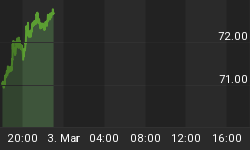Russia is considering replacing the U.S. dollar in crude oil payments on deals with Turkey and Iran, Energy Minister Alexander Novak said as quoted by RT.
According to Novak, “There is a common understanding that we need to move towards the use of national currencies in our settlements. There is a need for this, as well as the wish of the parties. This concerns both Turkey and Iran – we are considering an option of payment in national currencies with them. This requires certain adjustments in the financial, economic and banking sectors.”
Iran, under threat of returning U.S. sanctions, two months ago decided to ditch the greenback as a currency in its imports. A directive from the Ministry of Industry, Mine and Trade ordered traders to stop placing import orders in U.S. dollars. The argument in defense of the move was that Iran has no access to dollar transactions because of the sanctions, and removing it as an import payment currency would make life easier all around.
The country has emerged as a strong ally of Russia, especially as the two share the pain of sanctions. Last November, RT recalls, Ayatollah Ali Khamenei urged President Vladimir Putin to join him in quitting the dollar as a transaction currency and replacing it instead with national currencies to “isolate the Americans.”
Iran’s quest against the dollar also last year resulted in a bilateral deal between the central banks of Iran and Turkey to trade in national currencies. Russia is currently in negotiations with Tehran to do the same, although there are skeptics who believe switching from the greenback to national currencies is easier said than done.
Also, the advent of cryptocurrencies could facilitate the move away from the dollar as an international oil trade settlement currency, one analyst said recently. In a December 2017 note, Stephen Brennock from PVM Oil Associates said cryptos could help commodity-producing countries to switch from dollar to cryptocurrencies to reduce their dependence on the greenback. At the same time, he said, it would curb their exposure to dollar movement risks and the effects of sanctions, which typically feature cutting off access of the target country to international funding.
By Irina Slav for Oilprice.com
More Top Reads From Safehaven.com:

















